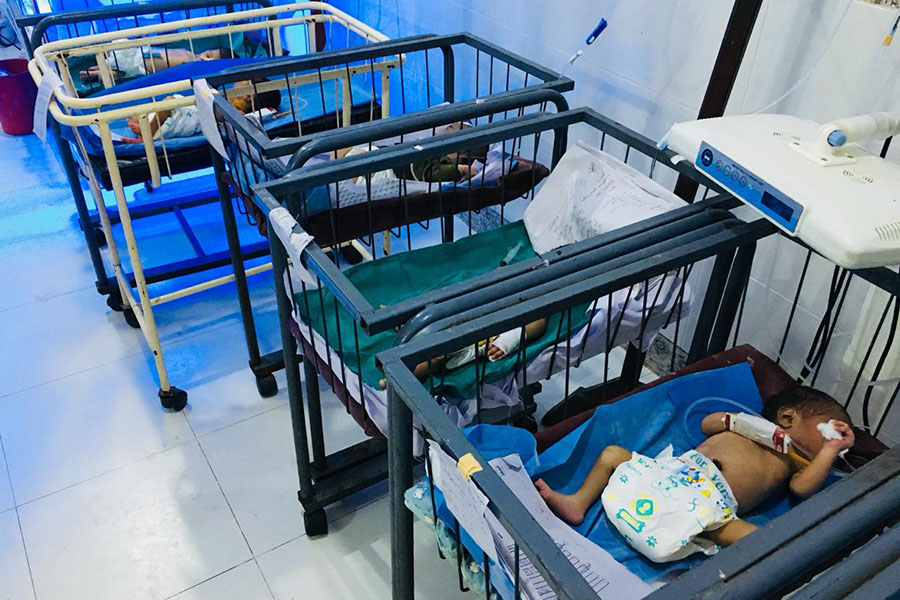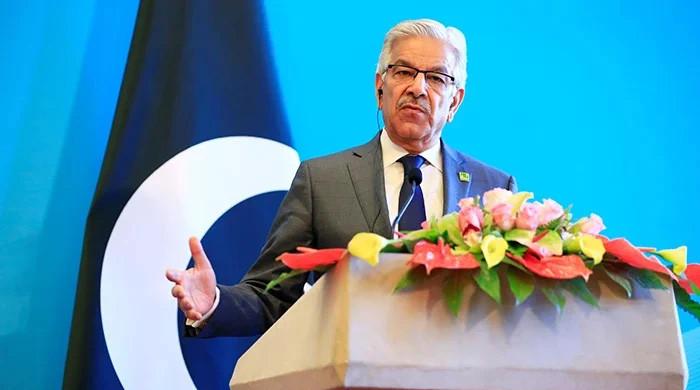Child marriages and infant mortalities in Thar
Despite claims by the provincial government of working to save lives, infants continue to die in the drought-hit Thar
November 06, 2018

“How many children have died in Thar this year?” asked the chief justice of Pakistan, last month, while hearing a suo moto case.
“486,” replied Dr Usman Chachar, Secretary Health Sindh.
With two more months to go, before the year ends, the number has already crossed last year's figure of 450 infants.
Despite claims by the provincial government of working to save lives, infants continue to die in the drought-hit Thar area of Sindh, due to complications caused by malnutrition and viral infections.
But that is just part of the crisis. Dr Allah Nawaz, who heads Thardeep, a non-governmental organisation, has been working in Thar since the last 20 years. The situation, he says, is far more complicated than what is reported in the media.
“In two decades, I have travelled to every corner of the Tharparkar district,” he tells Geo.tv, “There are settlements even in the remotest parts of the desert.” These people, he adds, are still living a life that is dependent on rain and natural resources.
“The children are dying not only due to malnourishment. The mothers are treated like animals by their husbands. They remain uneducated and are unaware of advancement in nutrition and childcare.”
Ali Akbar Rahimoo, executive director of the Association for Water, Applied Education & Renewable Energy (AWARE), agrees with Dr Nawaz. The NGO has been working in Tharparkar, Umerkot, Sanghar, Badin and Tando Muhammad Khan districts of Sindh for the last 10 years.
“Newborn children don’t just become ill overnight and die,” says Rahimnoo, “There is a chain of events which puts a child on a deathbed.”
While, the legal age to marry in Pakistan is 18, in Tharparkar girls as young as 12 or 13 are wedded. Teen pregnancies, births without a gap and unbalanced diets also contribute to malnourished children being born, he adds.
At the Mithi District Hospital, a mother gave birth to her tenth baby. “The mother is only 28-years-old,” explains Ghulam Rasool Kunmbhar, the district health officer, “And this is not an exception. We see many such cases every day.”
According to the officer, in 2015 there were 277 neonatal deaths in Tharparkar. That number increased to 334 in 2018. This year, to date, 512 children between the ages of 1-5 years have died.
Organisations like Thardeep and AWARE are working round the clock in the rural villages of the district to educate people about family planning, child marriages and nutrition. “People here don’t understand the concept of a balanced diet,” adds Dr Nawaz, “They would eat carbohydrates with carbohydrates, although they have grains they can mix carbs with to get proteins. We are trying to communicate this through seminars and awareness camps.”
In the meantime, the district health office has prepared a special diet plan, with the help of qualified nutritionists, for pregnant women in Thar, which is now available at basic health units.
Private and government organisations insist that in order to save lives, Thar needs a long-term plan. No shortcuts will do.











